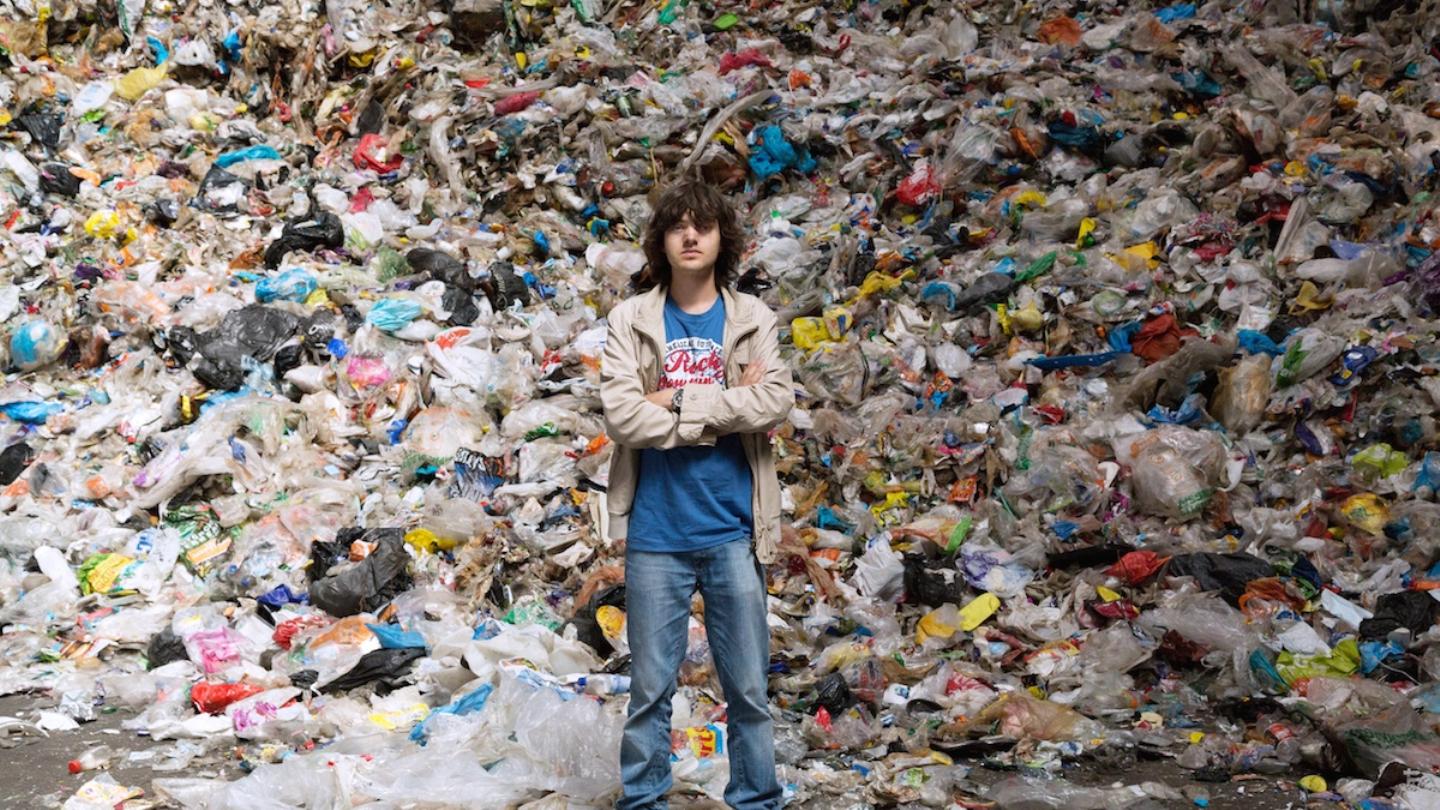How We’ll Solve Our Plastic Problem

Credit to Author: Daniel Oberhaus| Date: Thu, 09 Nov 2017 16:17:27 +0000
Asking someone to go a day without using an item partially or wholly made from plastic would be like asking them to go a day without breathing air. Since their invention roughly 100 years ago, plastics have come to dominate our world. It’s relatively cheap and easy to make them in bulk quantities, but the material is also malleable and ultra-durable. While its ability to withstand wear and tear was initially considered a benefit, this bonus feature of the world’s favorite synthetic material has quickly turned it into one of the largest environmental problems facing our species.
Each year, 225 million tons of plastic are produced, and the overwhelming majority of it is disposable (things like grocery bags and packaging for consumer products). Although some plastic ends up being recycled, a substantial portion ends up in landfills, where it will take hundreds of years to degrade. More worrisome are the plastics that don’t make it to the landfill at all, and end up getting washed into the ocean, where they create massive deposits of plastic junk and contribute to the painful death of an untold numbers of sea creatures every year and the desecration of marine environments.
Fortunately, scientists and intrepid environmentalists are hard at work so that in the future, today’s plastic problem will be a thing of the past.
Given that plastic is integral to our way of life today, if we’re going to get rid of the stuff, we’re going to need to come up with an alternative that can replace it. Right now, one of the most unlikely, but also promising, alternatives to plastic is being explored by researchers in the Netherlands: fungus.
Mushrooms and other fungi grow by using a branching network of ultrathin filaments called mycelia. As the researchers at Utrecht University in the Netherlands discovered, these filaments can be integrated into a number of different waste materials, such as drift wood or even potato starch. The researchers allow fungus to grow within a mold—say for a chair or cup—before baking it to kill the fungus and stop it from growing. At this point, the researchers are left with a durable and functional object—no plastic included.
Similar techniques are being explored by NASA as a possible way to build fungus houses on Mars. But mushrooms may very well have another role in the war against plastic: they can eat it. A group of microbiologists have developed a device called the Fungi Mutarium that takes plastic bags as input and produces edible mushrooms as output.
Other scientists are also looking for similar natural approaches to breaking down plastic. Earlier this year, it was discovered that wax moth larvae–usually reserved for fishing bait—are also big fans of munching on plastic. As researchers at Cambridge University discovered, 100 of these wax moth larvae can devour about 92 milligrams of plastic in 12 hours. That isn’t bad for some puny worms, but the real benefits are being sought at the genetic level. According to the Cambridge scientists, if they’re able to isolate the enzymes that gives wax moth larvae their taste for plastic, those genes could be put into bacteria or ocean-dwelling phytoplankton to devour plastics in the wild.
Even if scientists are unable to create plastic-loving bacteria in the lab, all is not lost. For better or worse, Mother Nature has already started taking things into her own hands. Earlier this year, Japanese scientists discovered a type of bacteria that had evolved to feed on the plastic we dump in the oceans.
But we’ll need more than an army of plastic-eating organisms to solve our waste problem. To help them in their struggle, a 23-year old named Boyan Slat is developing a fleet of specially-designed funnels, which leverage ocean currents to push plastic contaminants to places where they can be collected and recovered for proper disposal.
Plastic is a huge problem for the future of our species and our planet, but as Slat and his fellow plastic destroyers go to show, there is no shortage of huge solutions.
Dear Future is a partnership with CNET that will explore the people, companies, and communities that are ushering in the future we were all promised. Follow along here.
https://motherboard.vice.com/en_us/rss